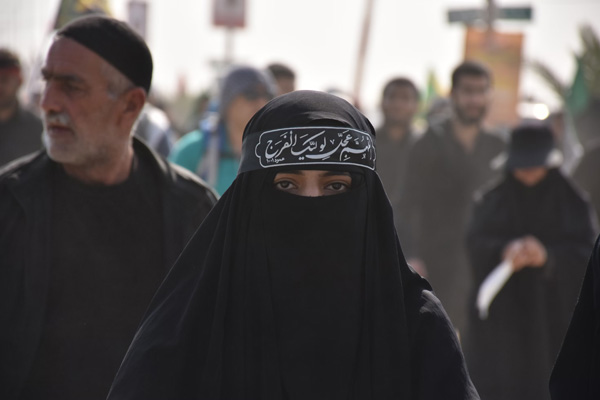New Taliban rules ban Afghan women from showing their faces and speaking in public

[Image of a woman in hijab. Credit to Unsplash]
Afghan women are facing even harsher restrictions under new "vice and virtue" laws imposed by the Taliban government, which prohibit them from showing their faces or speaking in public.
The laws, introduced in August 2024, require women to cover their entire bodies, including their faces, whenever they step outside of their houses.
Women are also banned from having their voices heard in public or even from singing or reading out loud within their homes.
These new measures have sparked international outrage and condemnation from the United Nations (UN) and human rights organizations worldwide.
The UN High Commissioner for Human Rights, Volker Turk, has strongly criticized the laws, calling them an attempt to turn women into "faceless, voiceless shadows."
Turk stated that these new regulations entirely erase women's presence in public spaces and rob them of their individual autonomy.
He emphasized that the laws represent a systematic effort by the Taliban to silence Afghan women, further taking their rights and freedoms.
The head of the UN Assistance Mission in Afghanistan, Roza Otunbayeva, condemned the new laws, describing them as extending the "already intolerable restrictions" on women and girls in Afghanistan.
She said the laws present a disturbing vision for Afghanistan’s future, where women are not allowed to be seen or heard, and moral inspectors have the authority to detain or threaten individuals based on vague infractions.
Otunbayeva warned that the new restrictions will further disempower Afghan women and girls, already heavily constrained since the Taliban's return to power.
The Taliban dismissed the UN's concerns.
Zabihullah Mujahid, a Taliban spokesman, responded to the criticism by accusing non-Muslims of "arrogance" and misunderstanding Islamic Sharia law.
He defended the laws as measures to promote virtue and prevent vice and called for "respectful acknowledgment of Islamic values."
This statement follows a series of refusals by the Taliban to engage with global concerns, including banning Richard Bennett, the UN special rapporteur on Afghanistan, from entering the country, accusing the UN of spreading propaganda.
Since regaining power in August 2021, the Taliban have imposed increasingly oppressive orders limiting women's participation in almost all aspects of life.
Afghan women and girls have been banned from secondary education, most forms of employment, public parks, gyms, and beauty salons.
Human rights groups describe these measures as "gender apartheid," excluding women from public spaces and denying them access to justice.
Legal experts argue that these new laws violate both domestic and international obligations.
Fawzia Koofi, a human rights activist and former vice-president of the Afghan parliament, condemned the Taliban’s actions as a deliberate attempt to erase women and criticized the international community's limited response.
She argued that global indifference has emboldened the Taliban.
Shukria Barakzai, a former Afghan parliamentarian and ambassador to Norway, echoed these concerns, criticizing the normalization of relations with the Taliban by some international organizations.
As Afghanistan slips further into an era of severe restrictions on women, the silence of global institutions becomes more concerning.
The new laws are another setback for women in Afghanistan, whose rights and freedoms have steadily been taken away under Taliban rule.
The international community faces increasing pressure to take action, hold the Taliban accountable, and advocate for the rights of Afghan women and girls.

- Chaemin Lee / Grade 11
- Saint Paul Academy Daechi

![THE HERALD STUDENT REPORTERS [US]](/assets/images/logo_student_us.png)
![THE HERALD STUDENT REPORTERS [Canada]](/assets/images/logo_student_ca.png)
